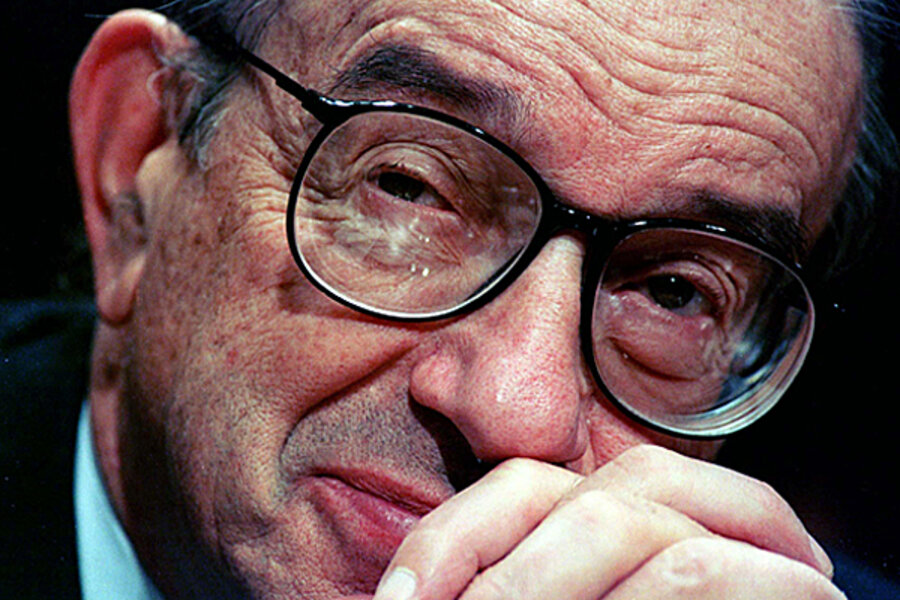Alan Greenspan, in a speech on Dec. 5, 1996, phrased it as a question: "How do we know when irrational exuberance has unduly escalated asset values?" But he meant it as a signal that stock prices may have soared a bit too high, and the news media and investors took it that way.
Greenspan's implied warning caused the stock market to open sharply lower the next day, although the Standard & Poor's 500 index closed that session with a loss of less than 1 percent. Still, the Fed chairman's words stirred debate over whether investor spirits were getting too high.
The Fed chief cautioned that asset-price booms could be followed by a bust with harsh consequences even for people with no money in stocks. "We should not underestimate or become complacent about the complexity of the interactions of asset markets and the economy," he said.
Greenspan's words didn't imply that the Fed would take any action designed to prevent or deflate a stock bubble. A hallmark of the Greenspan Fed, in fact, came to be the view that the central bank's best role would be to do economic damage control if an asset-price bust occurred.
Stocks kept rising for three years, and the Fed found itself providing emergency support after a 2000 stock-market plunge, and again after a 2007 real estate bust.





